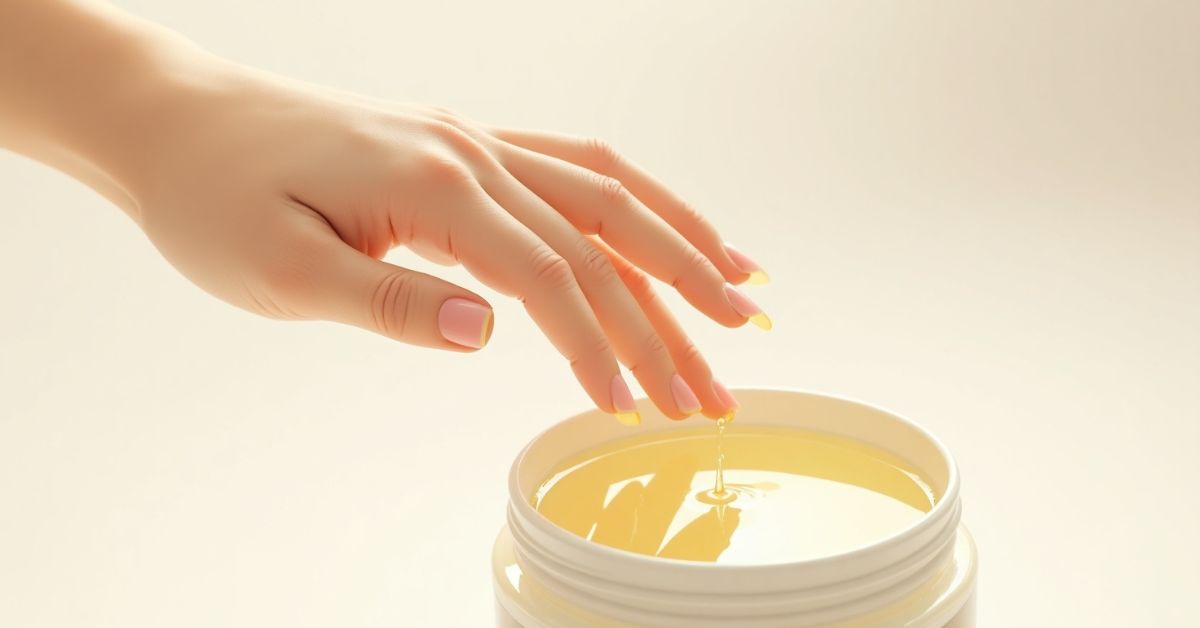
Can I Use Vaseline as Lube? Everything You Need to Know
Many people wonder whether common household items can double as personal lubricants, and Vaseline often tops this list. While petroleum jelly might seem like a convenient option when you’re in a pinch, the reality is more complex than you might expect.
Understanding what makes a good personal lubricant—and what doesn’t—is crucial for your sexual health and safety. This comprehensive guide explores whether can vaseline be used as lube, examines the potential risks and benefits, and provides safer alternatives for intimate moments.
Whether you’re asking “can you use vaseline as lube” out of curiosity or necessity, we’ll cover everything from safety concerns to better options that won’t compromise your wellbeing.
What Is Vaseline and How Does It Work?
Vaseline, also known as petroleum jelly, is an oil-based ointment made from petroleum. It’s soft, sticky, and smooth, with the ability to warm easily when rubbed between your hands. These properties might make it seem like an obvious choice for lubrication during intimate activities.
The product has been a household staple for over a century, primarily used for treating dry skin, minor cuts, and chapped lips. What vaseline is used for traditionally includes wound care, moisturising, and protecting skin from harsh weather conditions.
When considering vaseline as lubricant, it’s important to understand that petroleum jelly creates a barrier on the skin that locks in moisture. This occlusive property, while beneficial for treating dry skin, can create problems when used in intimate areas.
Can Vaseline Be Used on Private Parts?
The question “is vaseline safe for private parts” doesn’t have a straightforward yes or no answer. While vaseline can technically be applied to intimate areas, several factors make it less than ideal for sexual activities.
The delicate tissues of the vulva, vagina, and anus have different needs compared to other parts of your body. These areas require products that won’t disrupt the natural pH balance or create conditions that encourage bacterial growth.
Research shows that women who regularly use petroleum-based products in their vaginas are 2.2 times more likely to develop bacterial vaginosis compared to those who don’t. This increased infection risk stems from petroleum jelly’s ability to trap bacteria and create an environment where harmful microorganisms can thrive.
The Risks of Using Vaseline as Personal Lubricant
Increased Infection Risk
One of the most significant concerns about using vaseline as a personal lubricant relates to infection risk. The thick, occlusive nature of petroleum jelly can trap bacteria against sensitive tissues, potentially leading to:
- Bacterial vaginosis
- Urinary tract infections (UTIs)
- Yeast infections
If you’re wondering “can lube cause a uti,” the answer is that some lubricants can increase your risk, particularly oil-based products like Vaseline that aren’t designed for intimate use.
Condom Compatibility Issues
Another critical safety concern involves condom effectiveness. Petroleum-based products like Vaseline can weaken latex and polyurethane condoms, causing them to break or tear during use. This compromises protection against sexually transmitted infections and unintended pregnancy.
If you’re using barrier methods of contraception, petroleum jelly is not a safe choice for lubrication.
Difficult Cleanup and Staining
Unlike water-based lubricants that wash away easily, Vaseline can be challenging to remove from both your body and fabrics. The thick consistency means it may take several days to completely clear from your system, and it can leave permanent greasy stains on sheets, clothing, and other fabrics.
Potential for Vaginal Irritation
The petroleum base of Vaseline can cause irritation in some people, particularly those with sensitive skin. This irritation might manifest as:
- Itching or burning sensations
- Redness or inflammation
- Disrupted natural lubrication
If you’re dealing with existing irritation and wondering “can i use vaseline on my itchy vulva,” it’s better to consult a healthcare provider for appropriate treatment rather than self-treating with petroleum jelly.
When Might Vaseline Be Used?
Despite the risks, there are limited circumstances where vaseline might be considered acceptable for intimate use:
Emergency Situations
If you find yourself without proper lubricant and other options aren’t available, Vaseline can provide temporary relief from dryness or friction. However, this should only be a last resort, and you should clean the area thoroughly afterward.
Non-Penetrative Activities
For external massage or non-penetrative intimate activities where infection risk is lower, petroleum jelly might be more acceptable. Even then, proper intimate lubricants remain the safer choice.
When Condoms Aren’t Used
If you’re in a monogamous relationship where both partners have been tested for STIs and you’re using non-barrier contraception methods, the condom compatibility issue becomes less relevant. However, infection and cleanup concerns still apply.
What Lube Can I Use? Better Alternatives to Vaseline
When asking “what can i use for sex lube,” you have several safer options than petroleum jelly. The best alternatives fall into three main categories:
Water-Based Lubricants
Water-based lubes are often the safest choice for most people. They:
- Are compatible with all types of condoms
- Won’t disrupt vaginal pH balance
- Wash away easily with water
- Are less likely to cause infections
Popular water-based options include KY Jelly, Astroglide, and many other brands available at pharmacies and supermarkets.
Silicone-Based Lubricants
Silicone-based lubricants offer longer-lasting lubrication and are also condom-compatible. They:
- Don’t dry out as quickly as water-based lubes
- Work well for activities in water
- Are hypoallergenic for most people
- Provide smooth, long-lasting slip
Natural Oil-Based Options (With Cautions)
Some natural oils can be used as lubricants, though they share the condom compatibility issues of petroleum jelly:
- Coconut oil (solid at room temperature, melts with body heat)
- Sweet almond oil
- Olive oil (though this can be messy)
Remember that oil-based lubricants of any kind shouldn’t be used with latex condoms.
How to Stop Vaginal Itching: Addressing Underlying Issues
If you’re searching for “how to stop vaginal itching” and considering Vaseline as a solution, it’s important to address the root cause rather than just treating symptoms. Vaginal itching can result from:
- Yeast infections
- Bacterial vaginosis
- Sexually transmitted infections
- Hormonal changes
- Allergic reactions to products
- Skin conditions like eczema
Rather than applying petroleum jelly, which might worsen some of these conditions, consult with a healthcare provider for proper diagnosis and treatment.
Is Vaseline OK for Intercourse? The Bottom Line
The question “is vaseline ok for intercourse” requires a nuanced answer. While it won’t cause immediate harm in most cases, it’s not the best choice for several reasons:
- Infection risk: Higher likelihood of bacterial vaginosis and other infections
- Condom incompatibility: Can cause barrier methods to fail
- Cleanup difficulties: Hard to remove and can stain fabrics
- Better alternatives available: Purpose-made lubricants are safer and more effective
Choosing the Right Lubricant for Your Needs
When selecting a personal lubricant, consider these factors:
Your Activities
Different activities might benefit from different types of lubrication. Water-based lubes work well for most situations, while silicone-based options last longer for extended sessions.
Contraception Methods
If you use condoms, stick to water-based or silicone-based lubricants. Oil-based products, including Vaseline, can compromise latex barrier protection.
Sensitivity Issues
People with sensitive skin should look for lubricants specifically formulated for sensitive areas, often labeled as “sensitive” or “gentle” formulas.
Personal Preferences
Some people prefer warming lubricants, flavored options, or products with additional features. Always test a small amount first to ensure you don’t have allergic reactions.
Safety Tips for Any Lubricant Use
Regardless of which lubricant you choose, follow these safety guidelines:
Always Read Labels
Check ingredients lists for potential allergens or irritants. Avoid products with numbing agents unless specifically recommended by a healthcare provider.
Test First
Apply a small amount to your inner elbow and wait a few hours to check for allergic reactions before using any new product intimately.
Use Appropriate Amounts
More isn’t always better. Start with a small amount and add more as needed.
Store Properly
Keep lubricants in cool, dry places and check expiration dates regularly.
The Importance of Communication
Whatever lubricant you choose, communication with your partner is essential. Discuss preferences, allergies, and any concerns openly. What works for one person might not work for another, and finding the right products often involves some trial and error.
Don’t be embarrassed about needing lubrication—it’s a normal part of sexual health for many people and can enhance comfort and pleasure for everyone involved.
Making Informed Choices About Your Sexual Health
While vaseline can be used as a lubricant in emergency situations, it’s not the ideal choice for regular intimate use. The potential risks—including increased infection rates, condom incompatibility, and cleanup difficulties—outweigh the convenience factor.
Investing in proper personal lubricants designed specifically for intimate use is a small price to pay for better sexual health and safety. These products are formulated to work with your body’s natural chemistry while providing the slip and comfort you need.
Remember that your sexual health is an important part of your overall wellbeing. Don’t hesitate to speak with healthcare providers about any concerns or questions you might have about lubricants, sexual health, or intimate wellness.
By choosing appropriate products and staying informed about your options, you can enjoy safer, more comfortable intimate experiences while protecting your long-term health.







